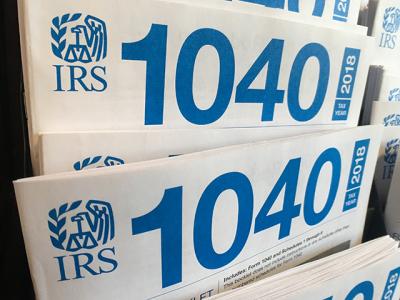Homeowners Contend With New Tax Law

As East End residents prepare 2018 tax returns, the repercussions of the tax reform law signed by President Trump in 2017, which takes effect this year, will affect local taxpayers, in particular those who have been able to deduct interest on home mortgages, according to Ronald Farnworth, a certified public accountant at East Hampton’s Kandell, Farnworth, and Pubins, an accounting and business advisory firm.
The legislation simplifies the federal filing process by providing a significant increase in the standard deduction, which is expected to be the most likely approach by taxpayers. The standard deduction allows taxpayers to submit taxes with “no questions asked,” Mr. Farnworth said. Married couples are allowed $24,000, and a single person can deduct $12,000, nearly twice last year’s amount. “The government expects that all but 8 percent of filers will use the standard deduction,” he said.
However, New York residents, who pay proportionally higher property and income taxes than residents of other states, are likely to be affected by a limit on the amount of state and local taxes — including property, income, and sales taxes — they can deduct on federal returns. The new law caps it at $10,000. Previously, taxpayers were allowed to deduct unlimited amounts. “For people in our area, their tax might be a little higher because of that change,” Mr. Farnworth said.
To counteract any adverse effect of the legislation on New Yorkers, the state has decoupled its tax policy from the law, and is allowing deductions for state and local taxes regardless of the federal limit. Taxpayers will need verifiable documents and receipts for state taxes, even if they are not itemizing on their federal returns. “People say, ‘Oh I don’t need to send you that stuff anymore,’ but that’s not true,” Mr. Farnworth said.
A possible side effect of the law’s incentive to opt for the standard deduction, which is likely to impact affluent taxpayers is that charitable organizations will not receive as many donations this year, he said. He is recommending that those who want to give to charities stagger their donations, that is, make a larger-than-usual contribution that exceeds the standard deduction this year and then wait a year and contribute again.
“Another piece of the puzzle is the reduced withholding,” Mr. Farnworth said, referring to the money withheld by employers and sent to the government as partial payment of an employee’s income tax. Since the law has lowered tax rates, wage earners may be caught off guard by their tax bills if they have not taken the change into account, he said. “The less people have withheld in salary, the lower their refund will be, or the more taxes they’ll have to pay.”
East End homebuyers also may be adversely affected by the new cap on mortgage interest deductions, which applies to interest paid on second homes as well as primary residences. A married couple who obtained a mortgage after Dec. 15, 2017, will only be allowed to deduct the interest on up to $750,000 of the debt; the previous amount was $1 million. “Given the price of homes in the Hamptons, and the number of second-home owners, that could have a real effect,” Mr. Farnworth said.
Paul Brennan, the executive manager of sales at Douglas Elliman real estate, agreed with this assessment. Lowering the deduction, he said, “will justify people’s fear that they won’t get the same benefit” from purchasing a house in the Hamptons as they have in years past.
A personal deduction of $4,050 per taxpayer and per dependent has been eliminated in the current law. For couples with several dependent children, that will be an unwelcome change. The tax credit for dependent children under 17, however, has been increased from $1,000 to $2,000. “The hope is that the higher standard deduction and child tax credit will offset the loss of the personal exemption,” Mr. Farnworth said.
One addition to the tax code that could provide a boon for some families is the expansion of a savings program for college expenses. Money contributed to this program is not subject to federal tax. Under the new law, up to $10,000 also can be used to pay tuition to private or religious elementary and secondary schools.
Mr. Farnworth said business owners would be among the biggest beneficiaries of the law, thanks to a provision that allows them to deduct 20 percent of their income from their federal taxes. There are several rules regarding who can take this deduction, he said, “but in general, most trades and businesses should be better off under this tax plan.”
